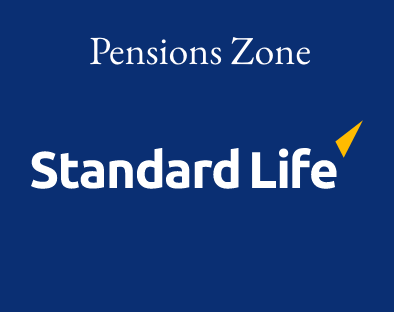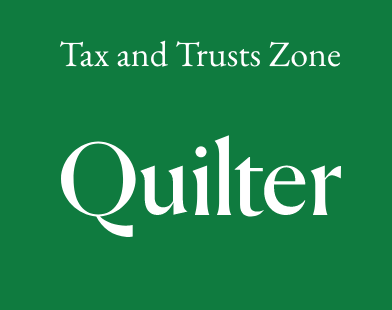Lindsay Smart, head of Sustainability at Triple Point, looks at the approach to making EIS and VCT investments a part of an ESG-focused portfolio.
The considerable amount of capital flowing towards environmental, social and governance (ESG) oriented assets over the last year is well documented. According to Morningstar, rising demand for such investments last year prompted European fund managers to change the strategy of 253 funds, helping to push regional assets invested in funds with an ESG focus to a record €1.1tn (£860bn). On top of these repurposed vehicles, Morningstar also flagged 505 new ESG fund launches in Europe in 2020.
But the level of scrutiny on ESG has prompted questions around its terminology, its potential impact on returns and how it informs investment decisions. Sustainability will no doubt rightly remain a priority, but investors require transparency and clear solutions to meet their needs and investment objectives. This transparency is promised in the form of new and emerging taxonomies from the EU and UK. As managers grapple with these requirements, investors have other well-established options at hand. Many alternative investment vehicles offer the chance to achieve a positive impact on society and meet ESG criteria, with the Enterprise Investment Scheme (EIS) and Venture Capital Trusts (VCTs) being notable examples.
Trend for ESG investing
Last year showed us that the development of ESG initiatives is a global priority across all sectors, and the momentum is only growing with the developments of COP 26 and more and more governments outlining commitments to a net-zero future.
The heightened interest in ESG-focused funds also reflects the adoption of strategies focused on these criteria by large institutional investors. But increasingly retail funds and investors are catching up: ESG-focused investment funds are seeing record net inflows and data from Fidelity International also shows that stocks with higher ESG ratings outperformed others in every month from January to September last year, with the one exception of April.[1] The promise of such financial returns alongside the potential for sustainable investment is very appealing for a broad range of retail investors.
Reassessing ESG investment options
Certainly, ESG funds have delivered. The UK’s top performing sustainability-focused fund over the last decade, the Royal London Sustainable Leaders Trust, achieved a return of 196%[2] over the past ten years, while the Liontrust Sustainable Future Global Growth delivered a return of 267% over the same period. [3] In addition to trusts, mutual funds have also delivered over the past couple of years. For example, Vanguard’s Global ESG Select Stock, returned 10.84% from July 2019 to September 2020, beating the FTSE All-World Index benchmark.[4]
However, partly to offer portfolio diversification benefits, while also potentially limiting exposure to some possibly overvalued ESG funds, investors and their advisers could consider committing some of their capital to backing non-listed growth businesses focused on ESG criteria through vehicles such as EIS and VCTs.
ESG benefits of investing through EIS and VCTs
EIS was established in 1994 to help raise money for smaller companies and has raised a total of £22bn for 31,365 companies since that date[5], while VCTs have raised over £9 billion since their inception in 1995, all for early stage, innovative UK businesses. This demonstrates both investment vehicles have been successful in backing the high-growth enterprises of the future and have generated good returns and tax benefits for investors, but EIS in particular increasingly now has an ‘Impact’ element – defined as investments made with the specific intent of generating positive, measurable social and/or environmental impact alongside a financial return.
Triple Point’s Impact EIS, for example, focuses on four key areas of health, children and young people, the environment and inequality, and has invested in 15 companies generating an estimated monetary value £2.2 million. Our VCT, meanwhile, carries out ESG integration alongside a negative screen for controversial sectors on the companies we invest in, and we aim to positively influence management teams in their ESG behaviours.
As demonstrated by Triple Point signing up to the UN’s Principles for Responsible Investment (PRI), we are committed to incorporating ESG issues into investment analysis and decision-making processes across all our investment strategies, not just EIS and our VCTs, and we have developed ESG integration approaches which are appropriate to each.
Balancing venture funding and ESG funds
Ultimately, as societies across the globe increasingly need to do more to stop environmental degradation, and as the next generation of consumers and entrepreneurs come to expect more from how companies are run and behave, the need and investor demand for investments into ESG-focused ventures will grow.
However, advisers should be aware that investors risk missing out if they only invest in the top ESG funds, which are potentially overvalued given the weight of money flowing into them, instead of including in their portfolio investments in smaller, unlisted companies that have a focus on environmental and social benefits. This could be not only a route to stronger returns, but also a firmer path to sustainability for us all.
[1] https://www.fidelity.co.uk/markets-insights/investing-ideas/esg-investments/can-esg-surge-continue-2021/
[2] https://www.ajbell.co.uk/news/uk-sustainable-fund-returns-show-performance-doesnt-have-cost-earth
[3] https://www.ftadviser.com/investments/2020/10/20/top-10-esg-funds-named-amid-record-year-for-inflows/
[4] https://www.morningstar.com/articles/1005324/this-esg-fund-from-vanguard-is-off-to-a-good-start
[5]https://assets.publishing.service.gov.uk/government/uploads/system/uploads/attachment_data/file/887546/May_2020_Commentary_EIS_SEIS_SITR_National_Statistics.pdf







































